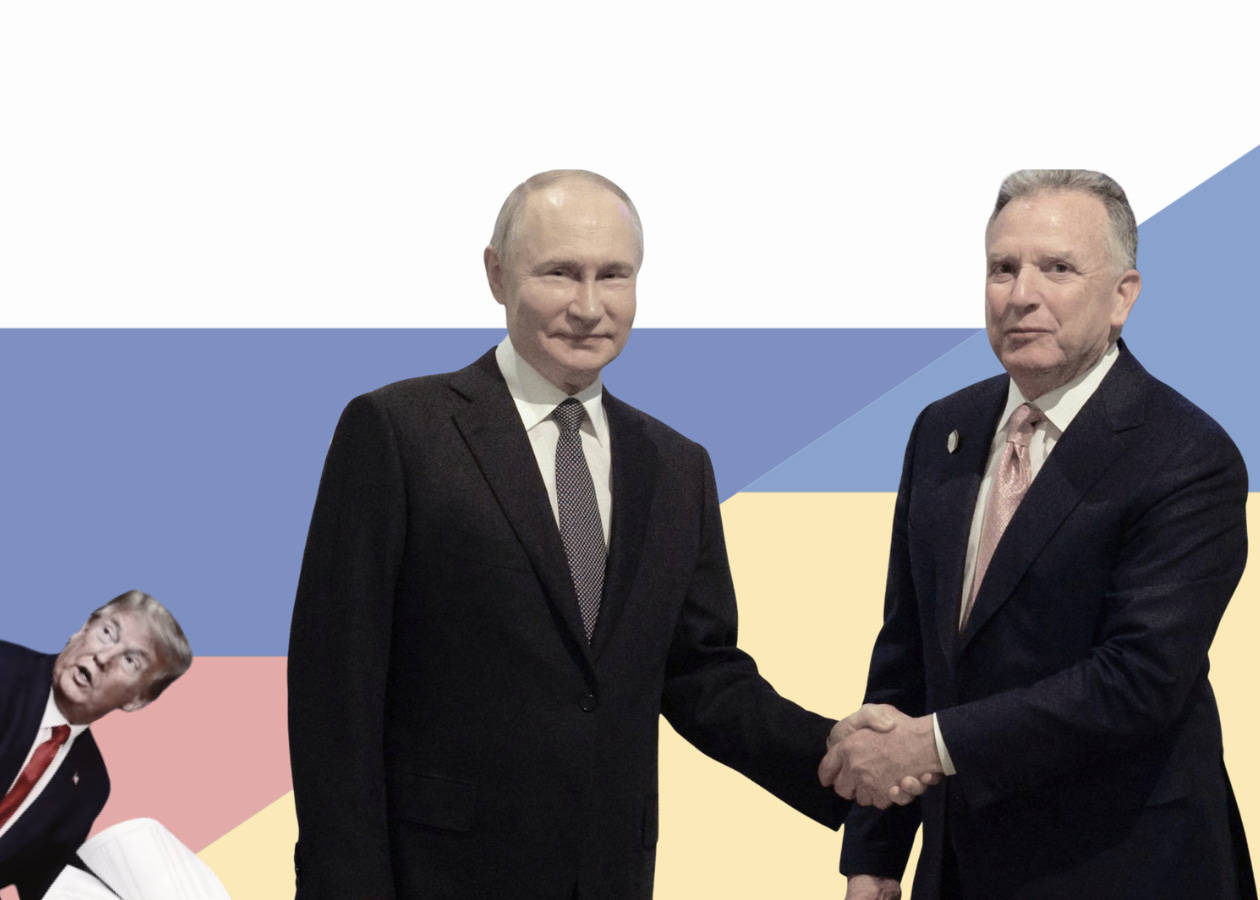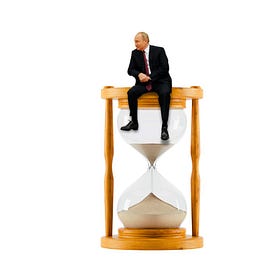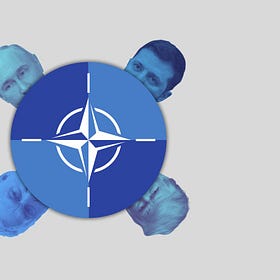Diplomacy for Sale: How Witkoff and Co. Cut a Deal with Russia
A Moscow-friendly deal that sells out Ukraine exposes how Witkoff and others are reshaping diplomacy for profit.
In a bombshell that should really surprise nobody, Bloomberg just reported that Steve Witkoff, the US Special Envoy to the Middle East, Russia, and apparently wherever else there’s money to be made, has actually been advising Kremlin apparatchiks on how to most effectively manage the President.
“Zelensky is coming to the White House on Friday,” Witkoff told Ushakov, “I will go to that meeting because they want me there, but I think if possible, we have the call with your boss [Putin] before that Friday meeting.”
In short, Witkoff appears to have been cooperating with the Russians to figure out how to most effectively advocate for their interests in the White House. This offers additional insight how Trump’s 28-point Russia-friendly plan to “end the war in Ukraine” came to be. But as dangerous as this plan is, it’s not just the content of the deal—which would force Ukraine to cede territory and constrain its military, undermining the very meaning of sovereignty—that is alarming. It’s also the process behind it.
How the administration arrived at this plan signals either gross incompetence or a fundamental shift in diplomatic priorities, one that has very little—if anything—to do with America’s geopolitical interests. Now, normally I would adhere to Hanlon’s Razor: “Never ascribe to malice that which could be adequately explained by incompetence.” Given Trump’s willingness to speak ill of just about every world leader other than Putin, however, my money is on something other than incompetence this time around.
We’ve seen much of the back-and-forth around whether or not this was an American proposal or a Russian one. First, we heard that this was Trump’s proposal to Kyiv. Recognizing the growing concern from both parties at the overtly pro-Russian nature of the plan, Rubio quickly sought to reassure Senators that the proposed plan was just a Russian proposal which the US was “passing along” to Ukraine. This was in turn quickly denied by the White House, leaving Rubio to publicly walk back what we can only assume he said to Senators privately. Meanwhile, the Trump Administration’s Ukraine Envoy, General Keith Kellogg, a three-star General with a lifetime of experience in international affairs, has been notably absent from any of the relevant conversations that should, presumably, have been at the very top of his portfolio.
In short, the National Security Advisor/Secretary of State, the person who is supposed to be in charge of coordinating America’s foreign policy across a sprawling federal government appeared to know nothing about the nature or origin of this deal. Neither did the Envoy charged with matters related to Ukraine. The absolute best case scenario is that this represents an incredible demonstration of ignorance and incompetence at the highest levels of government.
The much more realistic scenario, particularly in light of Bloomberg’s recent reporting, is that Witkoff, whose primary qualification appears to be his wealth and personal loyalty to the Trump family, was able to privately negotiate the terms of this deal with Russia’s Special Envoy, Kirill Dmitriev, excluding anyone in the administration who could ensure that appropriate diplomatic procedures were followed and US national security interests were properly considered. As a quick reminder, Witkoff is the same guy who, just a few short months ago, went to Moscow to speak with Putin and rather than bringing his own translator, chose to use one provided to him by the Kremlin, who, quite possibly, turned out to be a Russian agent. Because… Of course…
Ultimately, I believe that the focus on whether this was a mismanaged rollout of a Russian proposal or an even more mismanaged presentation of an American one is irrelevant because the answer won’t change anything. If the plan was Russian, why were we trying to pass it off as our own and why were we pressuring the Ukrainians to accept it? And if it was American, then why on earth would we essentially take Russia’s side and pressure Ukraine to capitulate? As with any crime, we should be asking: “who stood to gain?”
All of this becomes a lot easier to understand if we stop thinking of Trump, Witkoff, Putin, and Dmitriev as political leaders of opposing powers and instead think of them as leaders of competing but friendly mafia families dividing up territory and clout. Looking at the deal they concluded and the rhetoric emanating from both camps, it’s not too hard to get into that mindset. Nothing about this deal would ensure peace over the long (or even medium) term. Instead, this is merely a breather, offering Russia the chance to consolidate its gains and bide its time until it can attack again while the US, and more importantly, those in Trump’s immediate circles, have a chance to profit from doing business with Russia.
It does not take any great leaps of logic to come to this conclusion. From the Russian Foreign Minister stating that any deal would have to reflect the letter and spirit of Putin and Trump’s understanding from the Alaska Summit (I wonder what was agreed at the Alaska Summit…) to the recent revelations about just how cozy Witkoff has become with Russia’s leadership, I promise that you don’t have to be a chess master to understand the board.
Last week, I talked about how President Trump was privatizing American power at home. Today, this 28-point plan outlining Ukraine’s capitulation and the abandonment of American national security interests in Europe is what the privatization of American power looks like on a global scale.
More from The Next Move:
Playing Russia’s Game: When America is Desperate for Deals, Dictators Win
Trump, Biden, and Obama all pursued premature deals with hostile regimes. If dictators want a diplomatic bargain, all they have to do is wait.
What the Hell Is a “NATO-Style Security Guarantee” for Ukraine?
More meaningless jargon from the foreign policy blob on NATO, Ukraine, and Russia.






I listened to an excerpt of your speech at Halifax. You are absolutely right. I have been wondering for the last couple of years why Ukraine is still not in NATO. And I keep seeing Europe’s leaders talk about seizing the frozen Russian assets but it hasn’t happened yet. What is the holdup? Why is it taking so long for Europe to make a move? It is leaving Ukraine to swing alone in the wind!!
⭐🇺🇸🇺🇦 “The Promise the World Didn’t Forget”
In a land full of echoes from struggles long past,
Where the truth must stand tall
and the lies never last,
A bright little promise still shines, glowing yet—
A vow from the world
we should never forget.
It came from a time when the globe stood as one,
When fascism’s darkness
was finally undone.
Our grandparents fought with a courage so true,
So tyrants would fall
and the daylight break through.
They crossed stormy oceans with fire in their eyes,
They challenged the strongmen
and silenced their lies.
Their bravery carved out the freedoms we keep—
A legacy guarding
the wakeful and deep.
And today in Ukraine, that courage returns,
In people defending
their homes as it burns.
They stand against Russia’s illegal parade,
A tyrant whose cruelty
the whole world has weighed.
We remember the moment the globe made its stand—
The Budapest promise,
the word of each land:
Ukraine gave its weapons so peace could take root,
And trusted the world
not to follow the brute.
But here in our homeland, confusion still spreads
Through FOX-colored lenses
and right-winger threads.
They shout “all is fine!” while the families cry,
As prices climb higher
and checks barely buy
Insurance, and food, and the basics of day—
While propagandists twist
what the numbers convey.
So the grandparents rise with a bright steady beat,
With phones shining fiercely
like lamps in the street.
They comment with courage, they post without fear,
They lift Indy media
the nation must hear.
They share what is fact-based, transparent, and clear,
They push back the lies
till the truth reappears.
Each repost a lantern, each comment a flame—
A spark from the past
with a new modern name.
From Normandy’s beaches to Kyiv’s brave stand,
From WW2 sacrifice
to thumbs in our hand—
The torch passes onward from challenge to threat,
For truth is a promise
the world won’t forget.
© 2025 Clarissa Sr.
🦅 #GrandparentsForDemocracy | #StandWithUkraine | #ResharingBrigade | #FactBasedMedia | #LightInTheDarkness 💙❤️💛